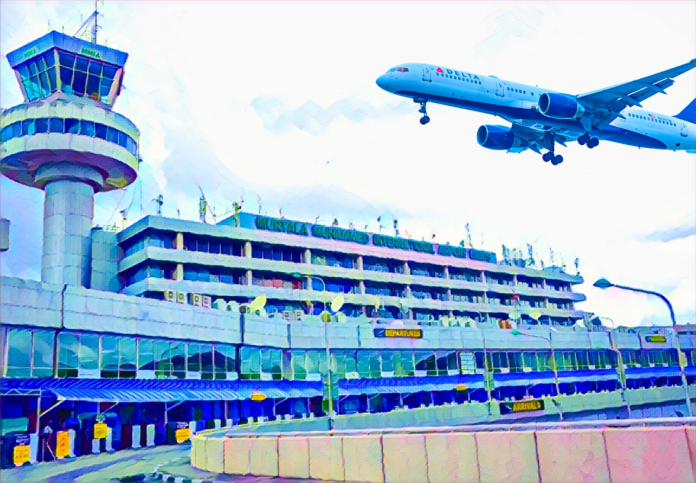Key Points
-
Nigerian passengers protest dollar-only ticket policy by airlines.
-
Airlines blame forex shortage for refusing naira payments.
-
Government faces pressure to protect passenger rights amid crisis.
Hundreds of Nigerian travellers have spoken out against foreign airlines that only let people buy tickets in U.S. dollars, saying the policy is unfair and bad for business.
The protests, which broke out at major airports in Lagos and Abuja, show how angry people are getting about the growing gap between the official and parallel exchange rates, which has made flying more and more expensive.
Airlines say the forex crisis and rising costs of doing business are to blame
The fight started when some international airlines, such as British Airways, Qatar Airways, and Emirates, stopped selling tickets in naira because the Central Bank of Nigeria (CBN) was taking too long to release trapped funds. Industry sources say that Nigeria is holding more than $700 million of foreign airlines’ money, which means they have to rely on sales in dollars to keep their businesses going.
People are questioning Nigeria’s independence and passenger rights
At Murtala Muhammed International Airport, passengers peacefully protested by holding signs that said “Stop Dollar Discrimination” and “We Deserve Fair Airfare.” Consumer advocates, like John Uket, who is in charge of the Aviation Consumer Protection Network, called the move “a breach of Nigeria’s sovereignty and a clear violation of consumer rights.” He told the Nigerian Civil Aviation Authority (NCAA) to step in right away, saying, “If passengers can’t buy tickets in their own currency, that’s not just an inconvenience—it’s economic subjugation.”
Group Capt. John Ojikutu (rtd), an aviation expert and former NCAA director, told reporters that the government needs to talk to airlines again instead of letting them “weaponise trapped funds” against passengers. “This isn’t just a business problem,” he said. “It’s about respecting Nigeria’s market and financial system.”
The government says it will step in, but it has very few options
Festus Keyamo, the Minister of Aviation and Aerospace Development, said he understood the passengers’ complaints and promised that the CBN, the International Air Transport Association (IATA), and the affected airlines were talking about them. But he warned that Nigeria’s lack of foreign exchange makes it hard for the government to force immediate changes.
He said, “We’re talking to the airlines to fix this quickly, but the truth is that the forex market is still tight.” The goal is to make sure that passengers are not treated unfairly while also meeting the needs of the carriers.
Dr. Bismarck Rewane of Financial Derivatives Company is one of many economists who say that the controversy shows how Nigeria’s money problems are bigger than this one. “The airlines are responding to a system that isn’t working. He said, “These problems will keep happening until Nigeria fixes its forex liquidity crisis.”
Travel agencies say that bookings are down by as much as 60% as middle-class Nigerians choose to travel within their own country or put off their trips altogether.



